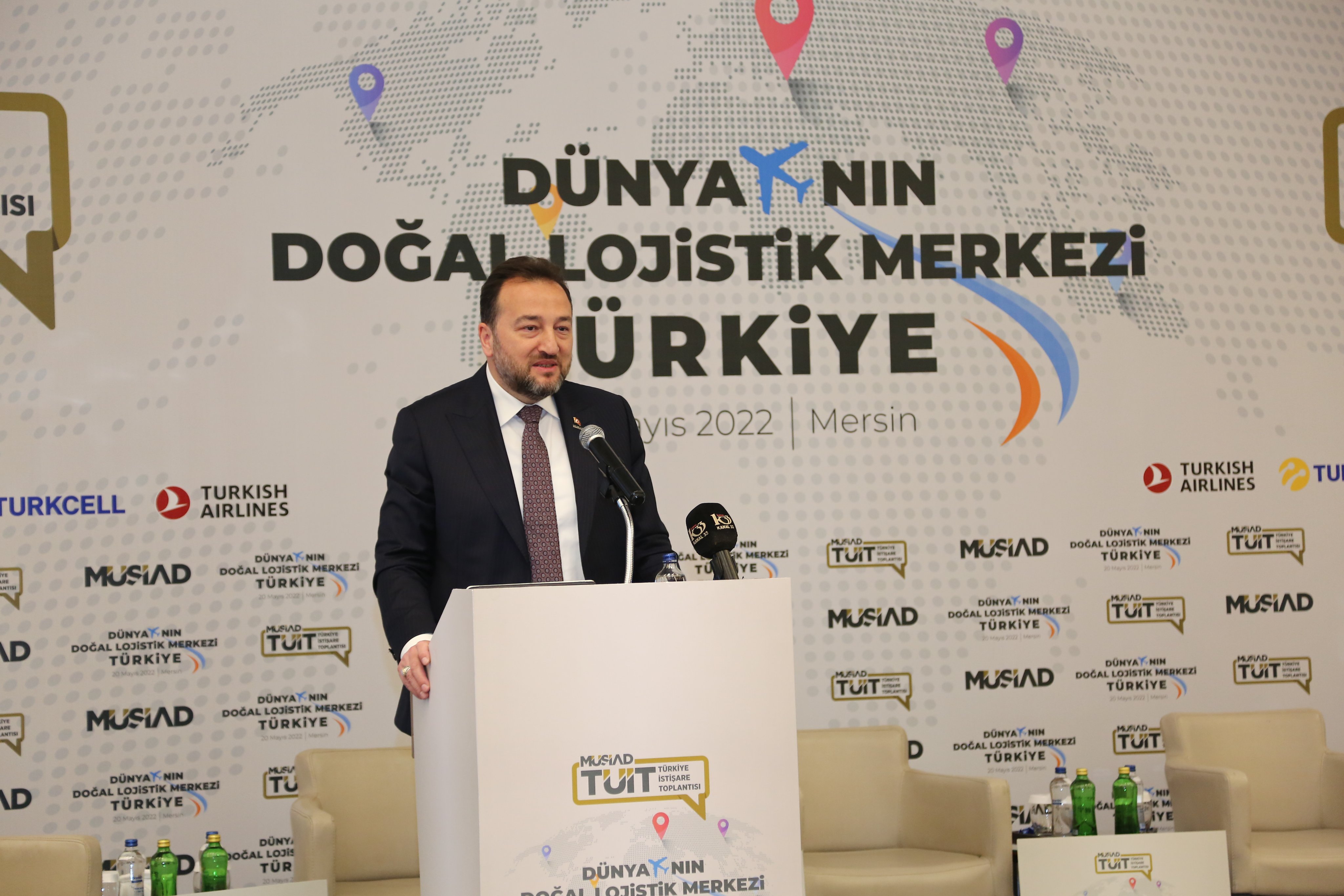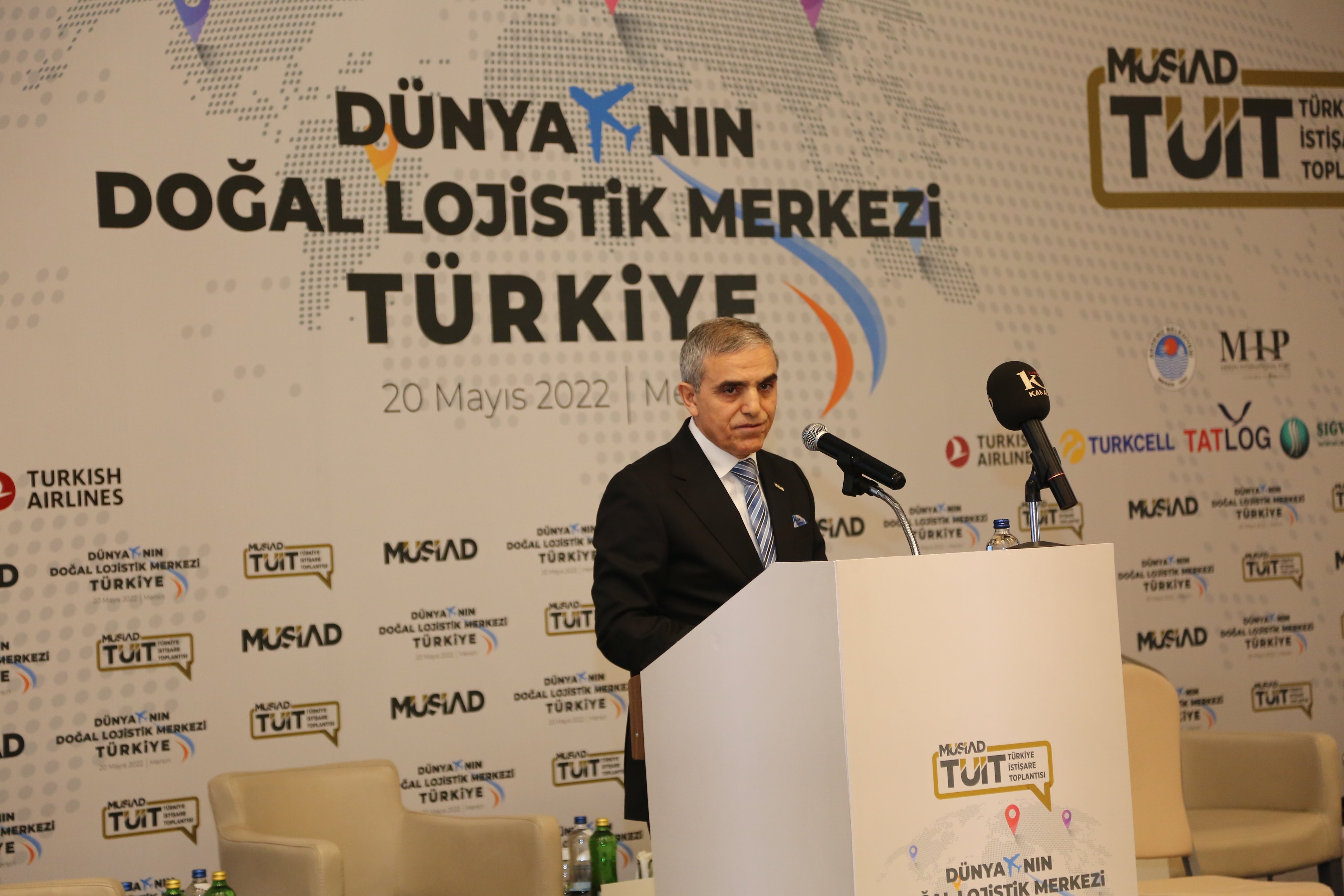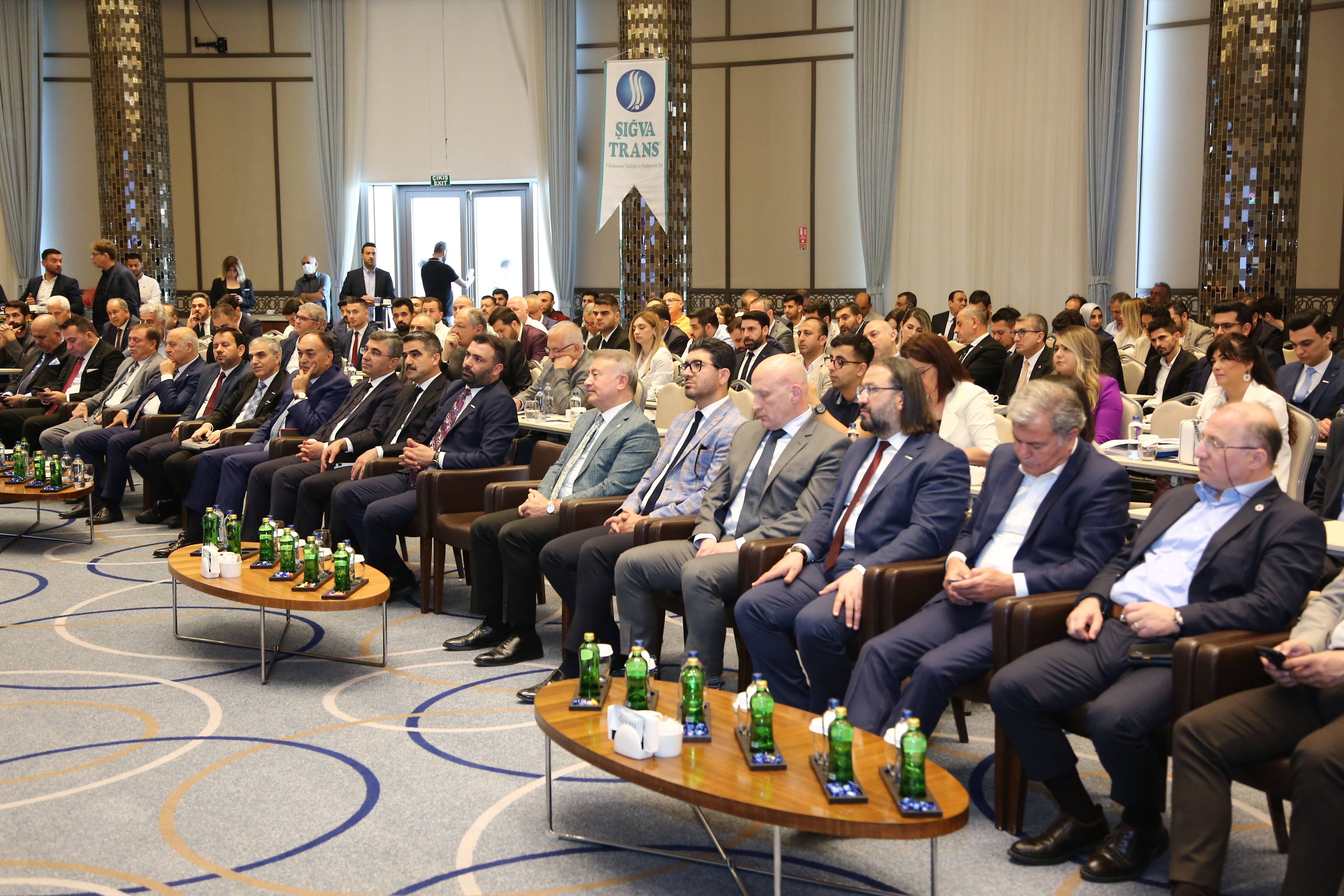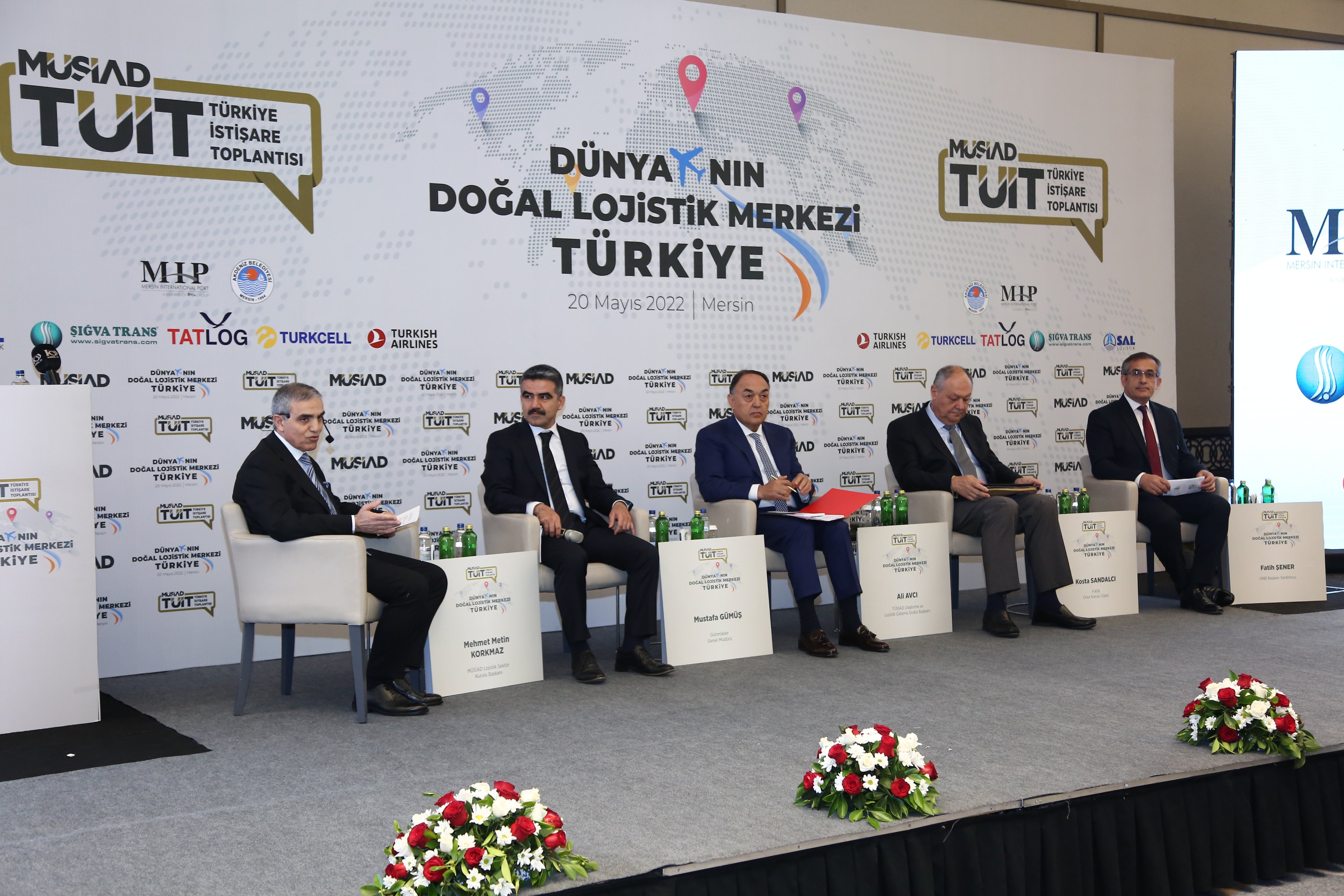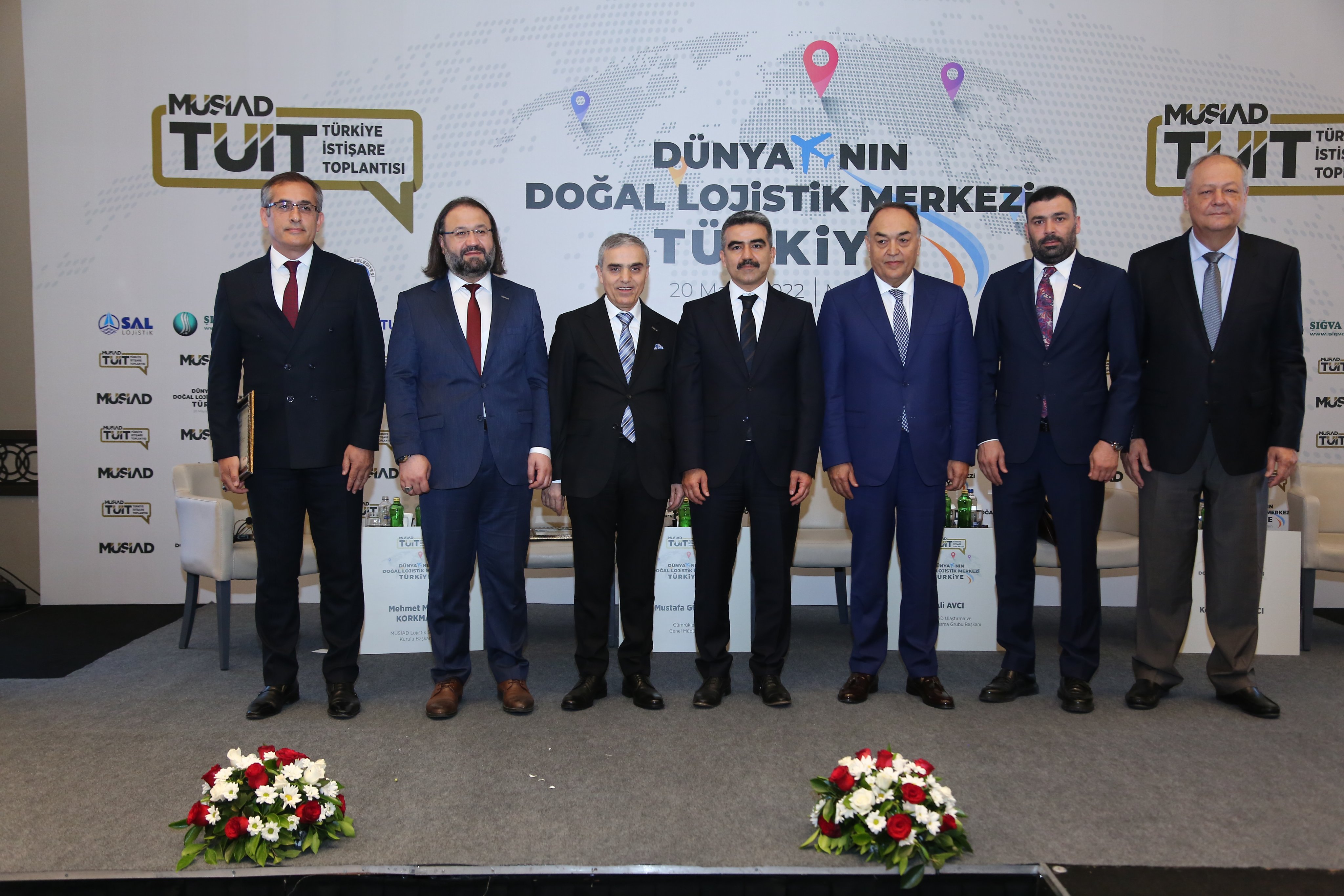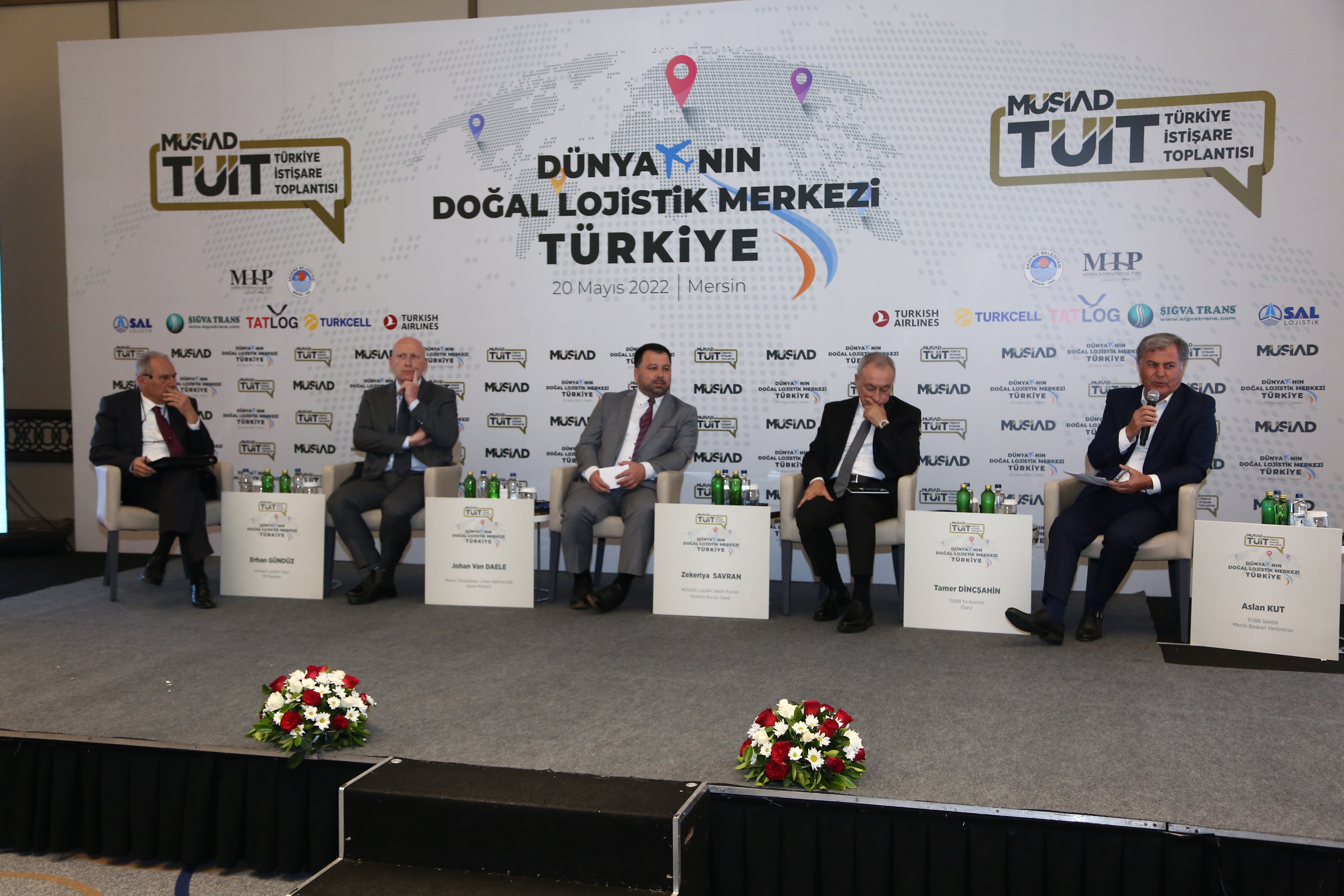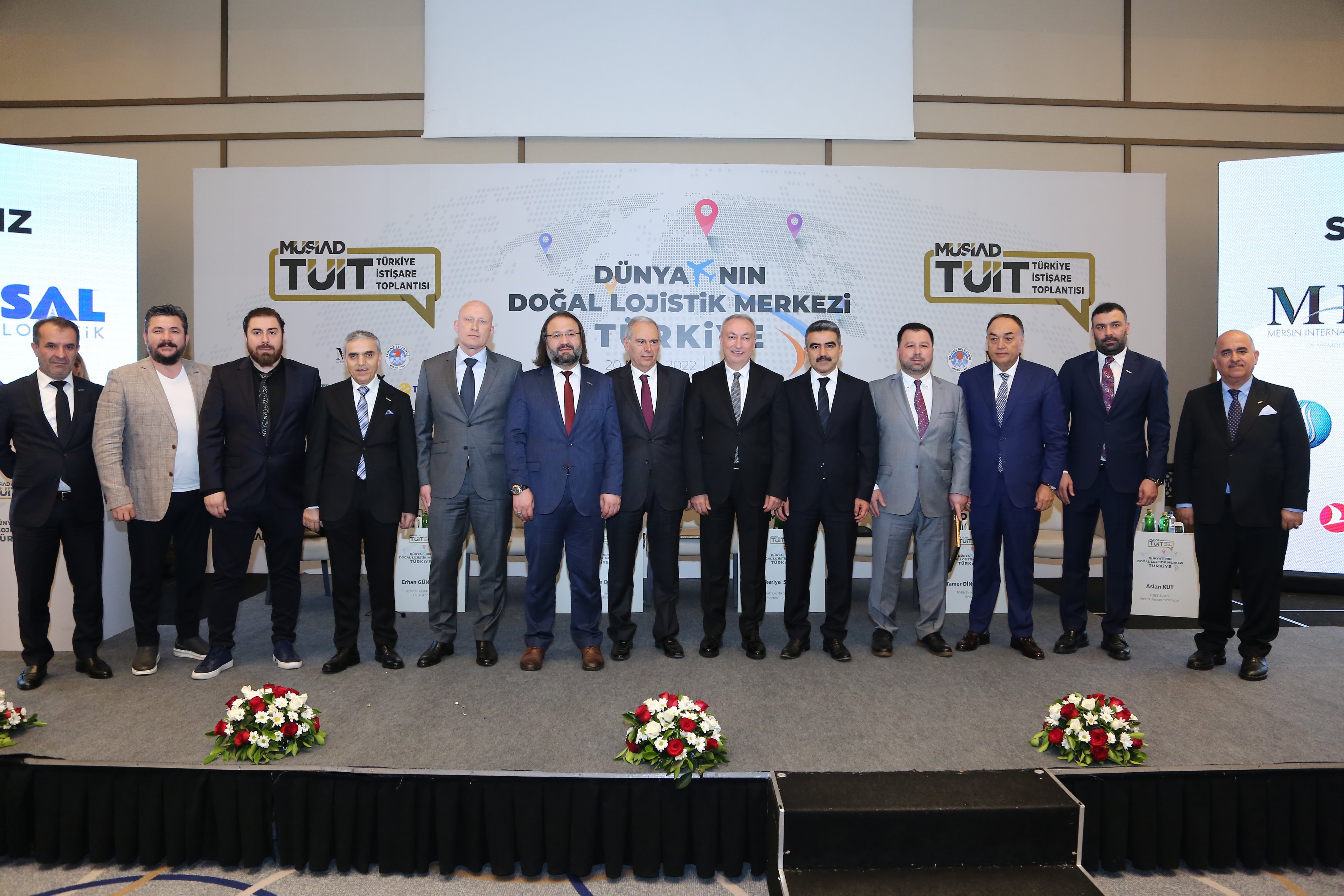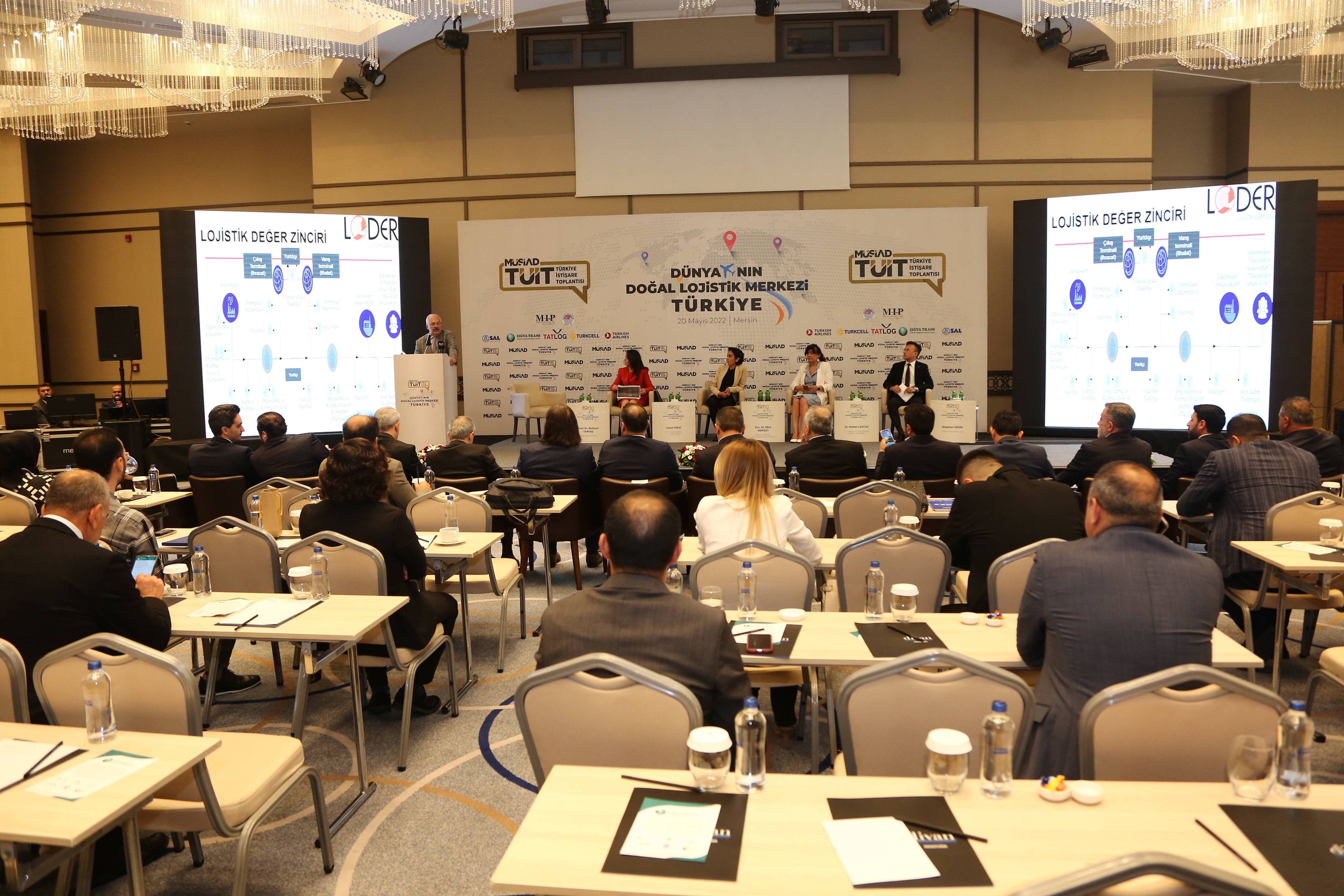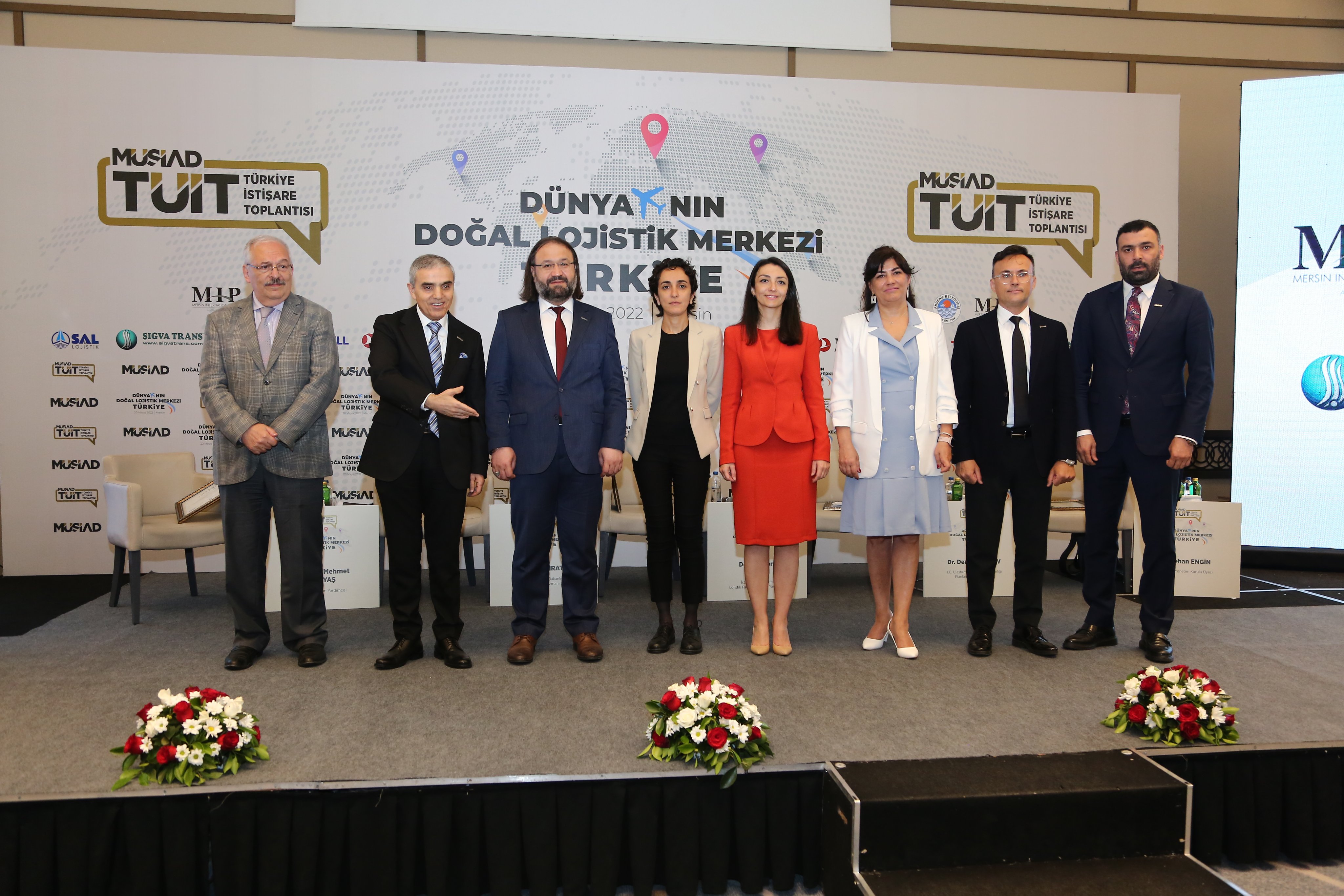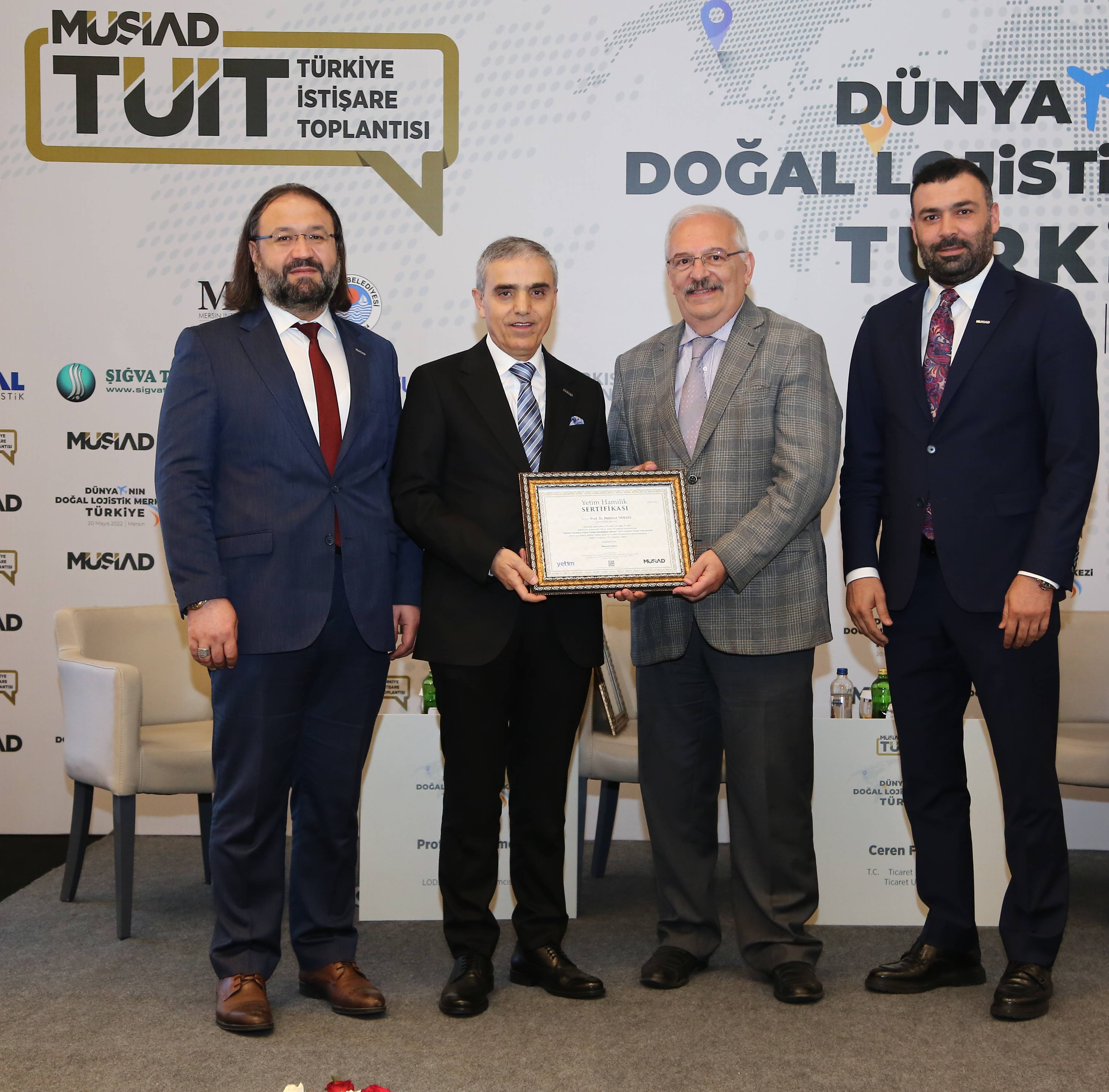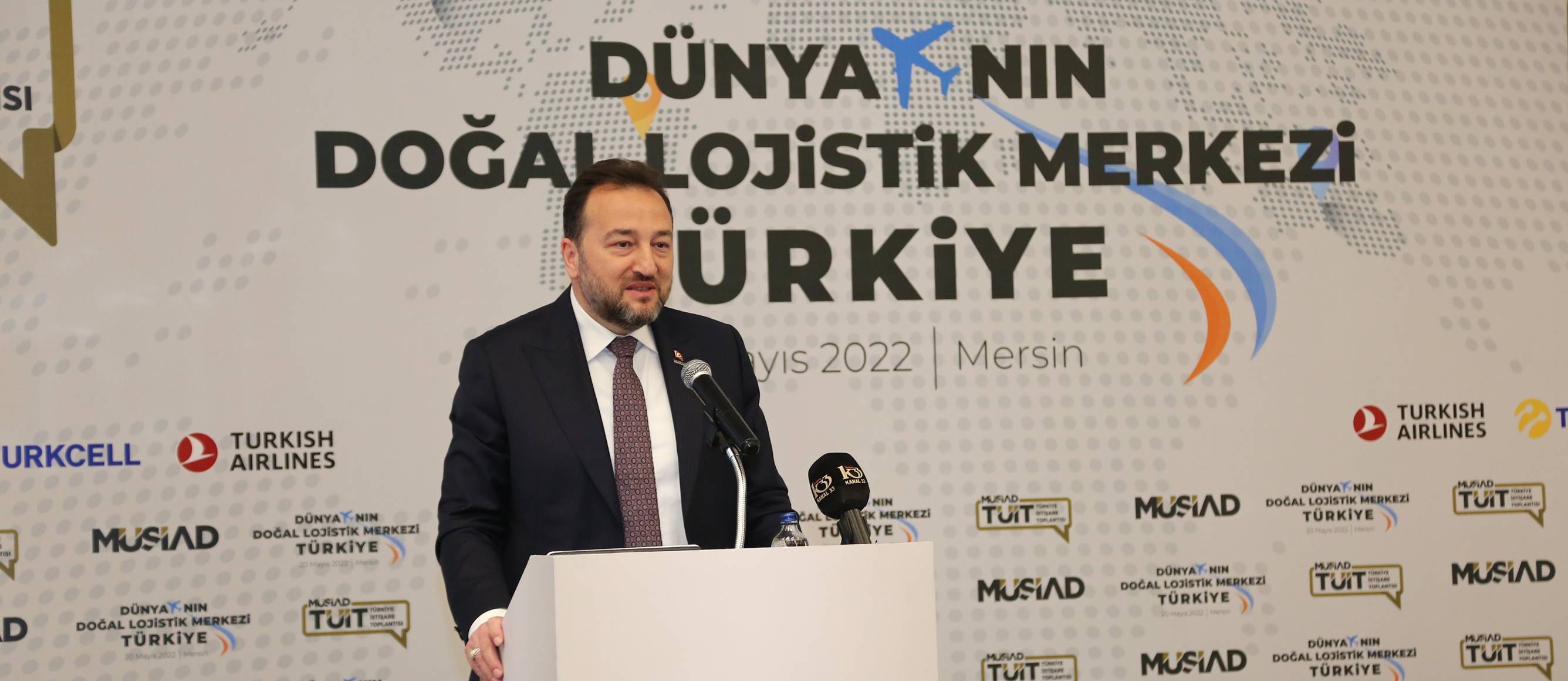
LOGISTICS INDUSTRY HAS BEEN HELD IN MERSIN
The MUSIAD TUIT program with the theme "Turkey, the Natural Logistics Center of the World" was held in Mersin. Making evaluations in the program, Mahmut Asmalı, President of MUSIAD, stated that they believe that the export target of 300 billion dollars will be achieved with the support of manufacturers and industrialists.
Turkey Consultation Meeting, which was organized with the theme of "Turkey, the Natural Logistics Center of the World", under the coordination of the Independent Industrialists' and Businessmen's Association (MUSIAD) Logistics Sector Board, was hosted by MUSIAD Mersin.
Within the scope of the program, "Nationalization in the Supply Chain and Transit Trade" with the participation of MUSIAD Logistics Sector Board President Mehmet Metin Korkmaz, Customs General Manager Mustafa Gümüş, FIATA Honorary Board Member Kosta Sandalcı, TÜSİAD Transport and Logistics Working Group President Ali Avcı, UND Vice President Fatih Şener. , Ankara Logistics Base President Erhan Gündüz, TOBB Sector Assembly Vice President Aslan Kut, TOBB Truck Committee Member Tamer Dinçşahin, Mersin International Port Management General Manager Johan van Daele, Çukurova Airport Management Chairman Süleyman Kozuva, with the participation of "Coordination and Qualified in Logistics" Logistics", LODER Vice President Prof. Dr. Mehmet Tanyaş, Deputy Director General of International Agreements and EU at the Ministry of Trade Bahar Güçlü, Deputy Dean of Istanbul University Faculty of Logistics Assoc. Dr. Ebru Demirci, Head of Planning Department of the Ministry of Transport and Infrastructure, Dr. Demet Cavcav, UTIKAD Board Member Bilgehan Engin, "Green Logistics and Carbon Footprint" panel sessions discussed the developments in the sector comprehensively.
Speaking at the program, President Asmalı said that the transportation and logistics sector is important for the development of the world economy and international trade. Stating that the supply chain processes are managed in the most effective way, Asmalı stated that the country is on the way to become the most preferred logistics center both in the far and near geographies, especially in the logistics sector. Pointing to the importance of Turkey's geopolitical position, MUSIAD Chairman Asmalı said, "Transportation and logistics capabilities have been added to the determining factors for production bases. In this context, Turkey, which is at a crossroads on the route between the world economic centers and raw material resources, where three continents intersect, is geopolitical. "We aim to gain the highest level of economic and political gain from the potential offered by its location. We are increasing our power in global trade on alternative routes," he said.
Explaining that carbon emission is defined as one of the most important elements of global warming, Asmalı said:
"It is unthinkable that Turkey, which has the largest fleet in Europe, ignores green logistics practices. There are also environmentalist practices in the services provided in addition to transportation in the logistics process. Studies carried out to consume electricity, water and natural gas used in warehouses more economically, some of the electricity used is solar Obtaining energy from energy, making the warehouse suitable for using daylight more, and preventing unnecessary electricity use in the warehouse are among these applications.
Stating that as MUSIAD, they will continue to sign new collaborations that will encourage Turkey to be one of the most preferred logistics centers in both near and far geographies, Asmalı said: It is our biggest wish that our country, which has turned into an international corridor in every mode, has a logistics network that is pointed out in foreign trade. With the support of our manufacturers and industrialists, who produce alternative solutions in order not to disrupt production and exports against intense demand, we all together to reach the export target of 300 billion dollars as soon as possible. We believe wholeheartedly that we will achieve it." made its assessment.
After the opening speech, the program continued with the panels "Nationalization in Supply Chains and Transit Trade" and "Coordination in Logistics and Qualified Logistics".



